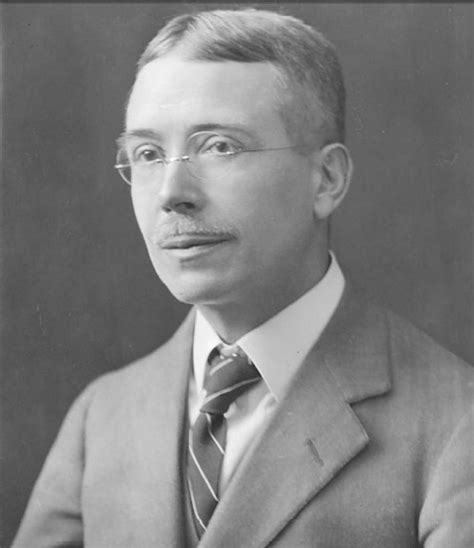A Quote by William Godwin
It is of no consequence whether a man of genius have learned either art or science before twenty-five: all that is necessary, or even desirable, is that his powers should be unfolded, his emulation roused, and his habits conducted into a right channel.
Related Quotes
Emulation, even in brutes, is sensitively "nervous." See the tremor of the thoroughbred racer before he starts. The dray-horse does not tremble, but he does not emulate. It is not his work to run a race. Says Marcus Antoninus, "It is all one to a stone whether it be thrown upward or downward." Yet the emulation of a man of genius is seldom with his contemporaries, that is, inwardly in his mind, although outwardly in his act it would seem so. The competitors with whom his secret ambition seems to vie are the dead.
The man who succeeds above his fellows is the one who early in life, clearly discerns his object, and towards that object habitually directs his powers. Even genius itself is but fine observation strengthened by fixity of purpose. Every man who observes vigilantly and resolves steadfastly grows unconsciously into genius.
Many people correctly make the point that our only hope is to turn to God. For example, Charles Lindbergh, who said that in his young manhood he thought "science was more important than either man or God," and that "without a highly developed science modern man lacks the power to survive," . . . went to Germany after the war to see what Allied bombing had done to the Germans, who had been leaders in science. There, he says, "I learned that if his civilization is to continue, modern man must direct the material power of his science by the spiritual truths of his God."
Men will imitate and admire his unmoved firmness, his inflexible conscience for the right; and yet his gentleness, as tender as a woman's, his moderation of spirit, which not all the heat of party could inflame, nor all the jars and disturbances of this country shake out of its place: I swear you to an emulation of his justice, his moderation, and his mercy.
The arts put man at the center of the universe, whether he belongs there or not. Military science, on the other hand, treats man as garbage - and his children, and his cities, too. Military science is probably right about the contemptibility of man in the vastness of the universe. Still - I deny that contemptibility, and I beg you to deny it, through the creation of appreciation of art.
The book, the college, the school of art, the institution of any kind, stop with some past utterance of genius. . . . They look backward and not forward. But genius looks forward: the eyes of man are set in his forehead, not in his hindhead: man hopes: genius creates. Whatever talents may be, if the man create not, the pure efflux of the Deity is not his; - cinders and smoke there may be, but not yet flame.
Every work of art reaches man in his inner powers. It reaches him more profoundly and insidiously than any rational proposition, either cogent demonstration or sophistry. For it strikes him with two terrible weapons, Intuition and Beauty, and at the single root in him of all his energies... Art and Poetry awaken the dreams of man, and his longings, and reveal to him some of the abysses he has in himself.
Reverence for life . . . does not allow the scholar to live for his science alone, even if he is very useful . . . the artist to exist only for his art, even if he gives inspiration to many. . . . It refuses to let the business man imagine that he fulfills all legitimate demands in the course of his business activities. It demands from all that they should sacrifice a portion of their own lives for others.
The readiness to sacrifice one's personal work and, if necessary, even one's life for others shows its most highly developed form in the Aryan race. The greatness of the Aryan is not based on his intellectual powers; but rather on his willingness to devote all his faculties to the service of his community.
The master in the art of living makes little distinction between his work and his play, his labor and his leisure, his mind and his body, his information and his recreation, his love and his religion. He hardly knows which is which. He simply pursues his vision of excellence at whatever he does, leaving others to decide whether he is working or playing. To him he's always doing both.
The motive of science was the extension of man, on all sides, into Nature, till his hands should touch the stars, his eyes see through the earth, his ears understand the language of beast and bird, and the sense of the wind; and, through his sympathy, heaven and earth should talk with him. But that is not our science.
A man of genuine literary genius, since he possesses a temperament whose susceptibilities are of wider area than those of any other, is inevitably of all people the one most variously affected by his surroundings. And it is he, in consequence, who of all people most faithfully and compactly exhibits the impress of his times and his times' tendencies, not merely in his writings where it conceivably might be just predetermined affectation but in his personality.
A genius is the man in whom you are least likely to find the power of attending to anything insipid or distasteful in itself. He breaks his engagements, leaves his letters unanswered, neglects his family duties incorrigibly, because he is powerless to turn his attention down and back from those more interesting trains of imagery with which his genius constantly occupies his mind.





































